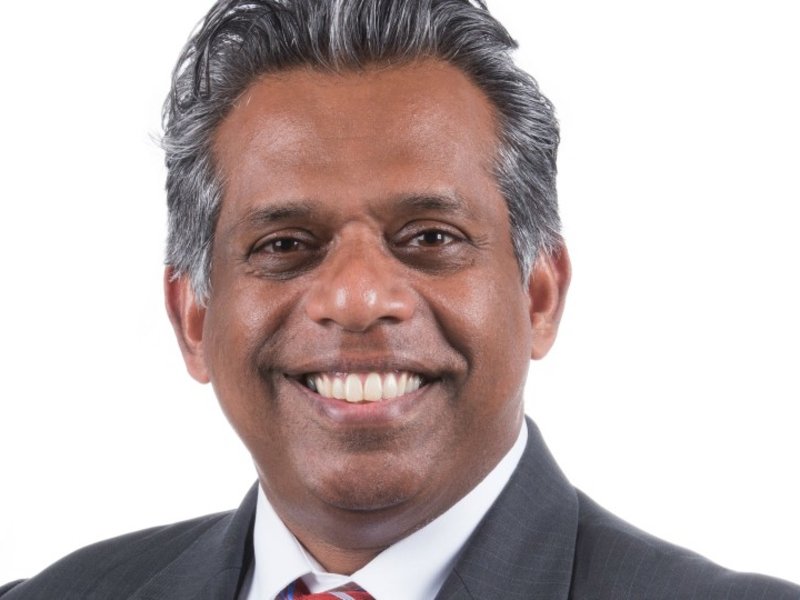
TOKYO — Planning for the removal of Carlos Ghosn began as early as April 2018, well before the auto executive’s arrest on charges of financial crimes, according to court testimony by the Nissan Motor Co. insider who was instrumental in the downfall of the carmaker’s former chairman.
Hari Nada, a senior vice president at the automaker, was answering questions posed by the attorney representing Greg Kelly, the former Nissan director who was arrested on the same day as Ghosn in November 2018 and is currently standing trial.
“I thought Mr. Ghosn’s conduct within the company raised questions of criminality well before April 2018,” Nada said in the Tokyo District Court on Wednesday. “I was conscious of Mr. Ghosn’s behavior on a range of matters, and I was concerned of that over a number of years before 2018.”
Nada was responding to questions about a flowchart that he had asked internal and external lawyers to prepare, which was delivered to him at the end of May in 2018. TV Tokyo first reported on the document last month, showing how planning for Ghosn’s ouster began much earlier than the official timeline given by Nissan.
Nada, 56, who worked for Ghosn and Kelly, was the central architect of a campaign to unseat the ex-chairman amid concern over his plans to further integrate Nissan and its alliance partner Renault, Bloomberg News has reported.
Nada agreed to cooperate with prosecutors on their cases against Ghosn and Kelly, who is charged with helping his high-flying former boss understate his income. Ghosn, who led the global automaker alliance that included Mitsubishi Motors Corp. staged an escape to Lebanon a year ago, smuggled inside a music-equipment box on a private jet, and is unlikely to ever face trial in Japan.
Kelly’s defense attorney Yoichi Kitamura also questioned Nada on memos where he discussed concerns within Nissan about the French government’s efforts to make the alliance between Renault and Nissan “unbreakable.”
A U.K.-trained lawyer, Nada served as chief of staff to Ghosn when he was CEO, and then to his successor Hiroto Saikawa, who took over in 2017. That position gave Nada a clear view into the inner workings of Nissan’s top management.
Nissan and Japanese prosecutors have long maintained that the decision to oust Ghosn was based on the allegations of under-reported income and the other financial crimes he’s been accused of, including funneling money from the company into accounts he controlled.
But Bloomberg’s reporting showed a powerful group of insiders led by Nada also saw the arrest and prosecution of the executive as an opportunity to revamp Nissan’s relationship with partner and top shareholder Renault. Nada called for termination of the agreement governing the alliance and the restoration of the Japanese company’s right to buy shares in Renault, or even take it over.
That initiative was shared in a memo shown in court Tuesday. Dated Nov. 18, 2018, a day before Ghosn and Kelly’s arrests, it called for a “fundamental change in the circumstances of the alliance and a new governance for the alliance must be found.”
The Nissan senior vice president, who took the stand for the first time last month, frequently asked Kitamura to repeat his questions.
Nada usually stood while answering and sat to examine documents when they were presented as evidence to the court.
“We do not comment on pending litigation,” a Nissan spokeswoman said.
The activity at the center of the trial began about a decade ago when new disclosure rules in Japan called on companies to disclose annual executive compensation of more than 1 billion yen ($9.6 million), triggering an effort to find alternative ways to pay Ghosn, according to the proceedings.
Ghosn was initially charged in Japan with underreporting about $80 million in income. Kelly, who ran human resources at Nissan before he became a director, and Nissan itself were also charged and are standing trial. While Kelly has denied allegations that he helped Ghosn hide his compensation over eight years, Nissan has effectively pleaded no contest.
Kelly, 64, is seeking to exonerate himself and return to the U.S., but his family and attorneys have questioned his ability to get a fair trial without the former chairman’s testimony, and criticized the slow pace of judicial proceedings in Japan.